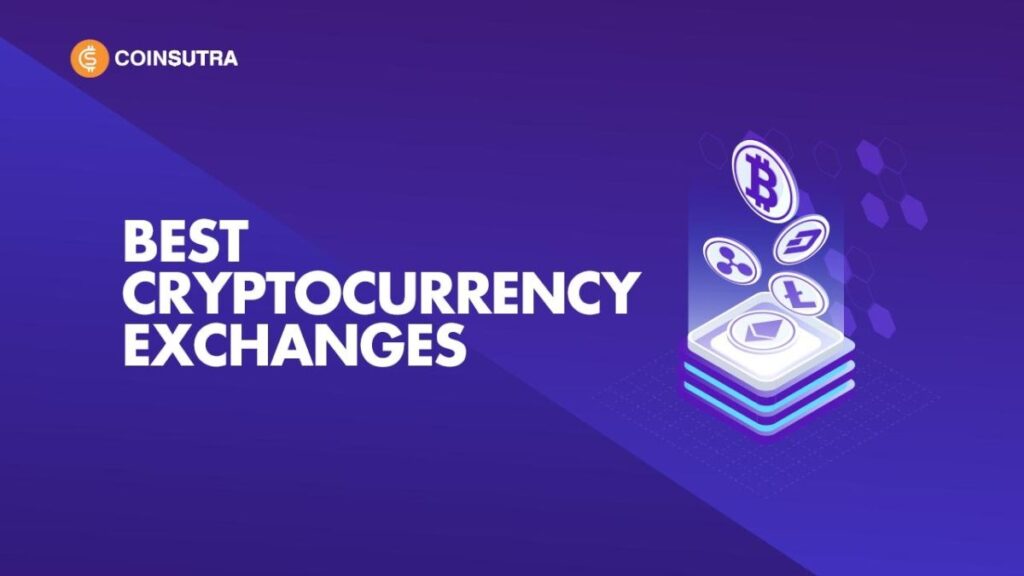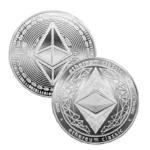The Best

1. Introduction to Crypto Exchanges
Cryptocurrency exchanges are platforms where users can buy, sell, and trade digital assets like Bitcoin, Ethereum, and other altcoins. With the growing popularity of crypto, choosing the right exchange has become critical for both beginners and experienced traders. This definitive guide breaks down the best crypto exchanges based on security, fees, features, and user experience.
Table of Contents
2. What Is a Crypto Exchange?
A crypto exchange is a digital marketplace where cryptocurrencies are traded. There are two main types: centralized exchanges (CEX) and decentralized exchanges (DEX). Centralized exchanges act as intermediaries between buyers and sellers and are more beginner-friendly. Decentralized platforms, on the other hand, allow for peer-to-peer trading without the need for a third party.Best Crypto Exchanges.
Internal Link Tip: Learn more about how blockchain works and its role in best crypto exchanges.

3. Key Features to Look For
When choosing a crypto exchange, it’s essential to evaluate the following:
- Security: Look for platforms with two-factor authentication (2FA), cold storage, and regulatory compliance.
- Fees: Consider trading fees, withdrawal fees, and deposit fees.
- Liquidity: High liquidity means better prices and faster transactions.
- Supported Assets: Ensure the exchange supports the coins you’re interested in.
- User Experience: A clean interface, mobile app, and responsive customer service go a long way.
4. Binance – Best for Global Users
Binance is one of the most popular and largest best crypto exchanges in the world. It offers hundreds of coins, advanced trading tools, and some of the lowest fees in the industry (starting at 0.1%). Binance also supports staking, futures trading, and has a robust mobile app. While it’s ideal for advanced users, beginners can benefit from its user education tools. Best Crypto Exchanges.
Internal Tip: Check out our guide on crypto futures trading for more insight.
5. Coinbase – Best for Beginners
Coinbase is perfect for those just entering the crypto space. Based in the U.S. and regulated by multiple financial authorities, it offers an extremely user-friendly interface, simple buying/selling processes, and educational rewards for learning about best crypto exchange The fees are slightly higher, but the convenience and trust factor often justify the cost Best Crypto Exchanges.

6. Kraken – Best for Security
Kraken is known for its strong security protocols. It has never been hacked since its inception in 2011. It offers over 200 cryptocurrencies, margin trading, and OTC desk for high-volume traders. Kraken also provides staking services and a Pro version for advanced users Best Crypto Exchanges.
7. KuCoin – Best for Altcoins
KuCoin is famous for its wide selection of altcoins. With over 700 digital assets available, it’s a top choice for those looking to diversify their portfolios. It has competitive trading fees, a strong community, and additional features like crypto lending and trading botsBest Crypto Exchanges.
8. Gemini – Best for Regulation and Trust
Gemini was founded by the Winklevoss twins and operates under strict regulatory frameworks in the U.S. It offers both individual and institutional services, along with a simple and clean user interface. Gemini also insures digital assets held in their hot wallet and places a strong emphasis on compliance and security Best Crypto Exchanges.
9. Crypto.com – Best for Crypto Debit Cards
Crypto.com is a multi-functional exchange that not only allows trading but also offers DeFi services, an NFT marketplace, and the popular Crypto.com Visa Card. It supports over 250 cryptocurrencies and provides cashback on spending, making it a great choice for those who want to integrate crypto into everyday life Best Crypto Exchanges.
10. Best Decentralized Exchanges (DEXs)
If you value privacy and control over your assets, decentralized exchanges are worth exploring. Leading DEXs include:
- Uniswap: Based on Ethereum, allows token swaps and liquidity provision of Best Crypto Exchanges.
- PancakeSwap: Built on Binance Smart Chain with lower gas fees and Best Crypto Exchanges.
- dYdX: Offers margin trading in a decentralized manner of Best Crypto Exchanges.
These platforms don’t hold your funds and operate using smart contracts, which can be a safer alternative if used correctly the Best Crypto Exchanges.
11. How to Stay Safe on Crypto Exchanges
Security should always be a top priority. Here are a few steps to protect yourself:
- Use 2FA and strong passwords in Best Crypto Exchanges.
- Withdraw to a cold wallet after trading in Best Crypto Exchanges.
- Avoid public Wi-Fi when accessing your account in Best Crypto Exchanges.
- Be cautious of phishing emails or suspicious links in Best Crypto Exchanges.
- Regularly monitor your account for unauthorized activity
Internal Link Tip: Learn the difference between hot wallets vs cold wallets to understand safe crypto storage.
12. Final Thoughts: Choosing the Right Exchange for You
There’s no one-size-fits-all when it comes to crypto exchanges. Your best choice depends on your goals, experience level, and desired features. For beginners, Coinbase or Gemini offer simplicity and security. Advanced users may prefer Binance or Kraken for their tools and liquidity. Those diving into altcoins might gravitate toward KuCoin, while DeFi enthusiasts can explore Uniswap or PancakeSwap.
Pro Tip: Test a few exchanges with small amounts to see which interface and features suit your needs best.

Conclusion
The crypto exchange you choose plays a significant role in your trading experience. Whether you’re a beginner seeking simplicity or an expert looking for advanced tools, the market offers a variety of platforms tailored to your needs. Always prioritize security, do your research, and stay informed about the evolving crypto landscape.
Frequently Asked Questions (FAQs)
Q1: What is the safest crypto exchange?
A: Kraken and Gemini are known for their strong security measures and regulatory compliance.
Q2: Which exchange has the lowest fees?
A: Binance generally offers the lowest trading fees, starting at just 0.1%.
Q3: Is it better to use a centralized or decentralized exchange?
A: Centralized exchanges are more user-friendly and offer more services, while decentralized ones offer privacy and control.
Q4: Can I store crypto on an exchange?
A: Yes, but it’s safer to transfer your funds to a personal cold wallet after trading.
Q5: Are crypto exchanges regulated?
A: Some are, especially in countries like the U.S., U.K., and Japan. Look for licensed platforms for added safety.
Q6: What exchange is best for altcoins?
A: KuCoin supports a wide range of altcoins and has competitive trading fees.
Q7: What happens if an exchange gets hacked?
A: Some exchanges offer insurance for user funds, but not all. It’s best not to keep large amounts on any platform.
Q8: Can I use multiple crypto exchanges?
A: Yes, many users spread their assets across different platforms to diversify risk and access more trading pairs.
Q9: How do I know if a crypto exchange is legit?
A: Check for licenses, read user reviews, verify their security protocols, and confirm their presence on trusted sites like CoinMarketCap.
Q10: Are there any crypto exchanges with rewards?
A: Coinbase offers educational rewards, while Crypto.com provides cashback through its debit card program










